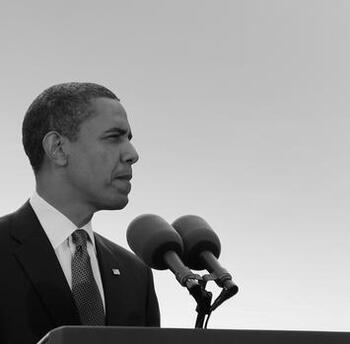
Barack Obama has always wanted to be a transformational president, and in this, at least, he has been true to his word. The question is what kind of America is being created, and what future does it offer the next generation.
President Obama’s great accomplishment, arguably, has been to spur the evolution of a society that formerly rested on individual and familial aspiration, and turn it into a more regulated and centralized regime focused on broader social and environmental concerns. This tendency has been made much stronger as the number of Americans, according to Gallup, who feel there is “plenty of opportunity ahead” has dropped precipitously – from 80 percent in 1997 to barely 52 percent today.
The shift away from the entrepreneurial model can also be seen in the constriction of loans to the small-business sector. Rates of business start-ups have fallen well below historical levels, and, for young people in particular, have hit the lowest levels in a quarter century. At the same time, the welfare state has expanded dramatically, to the point that nearly half of all Americans now get payments from the federal government.
In sharp contrast to the Bill Clinton White House, which accepted limits on government largesse, the newly emboldened progressives, citing inequality, are calling for more wealth transfers to the poorer parts of society, often eschewing the notion that the recipients work to actually improve their lives. The ever-expanding regulatory state has powerful backing in the media, on campuses and among some corporations. There is even a role model: to become like Europe. As the New York Times’ Roger Cohen suggests, we reject our traditional individualist “excess” and embrace, instead, Continental levels of material modesty, social control and, of course, ever-higher taxes.
Read the entire piece at The Orange County Register.
Joel Kotkin is executive editor of NewGeography.com and Roger Hobbs Distinguished Fellow in Urban Studies at Chapman University, and a member of the editorial board of the Orange County Register. He is also executive director of the Houston-based Center for Opportunity Urbanism. His newest book, The New Class Conflict is now available at Amazon and Telos Press. He is also author of The City: A Global History and The Next Hundred Million: America in 2050. He lives in Orange County, CA.
Barack Obama Photo by Bigstock.













Time to talk about Trump
How's he doing in California among Democrats and Independents, Hispanic especially? He polled well among Hispanics in Nevada recently if I am not mistaken and is repidly gaining on Clinton in the general. This is a topic made for Joel. It's largely about jobs, including manufacturing jobs, and the chances of the low-skilled. Will probably appeal to African Americans too. Truly an amazing development. Or maybe not. Was an opportunity waiting to happen. Trade and immigration are the two major pocketbook issues that have been kept off the table. But now that the camel has got his nose under the tent . . .
Luke Lea